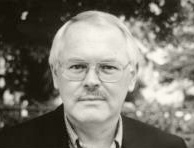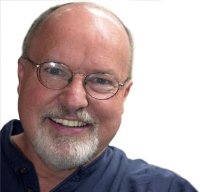Hear my cry, O God, listen to my prayer; from the end of the earth I call to you, when my heart is faint. Lead me to the rock that is higher than I; for you are my refuge, a strong tower against the enemy. [Psalm 61:1-3]
In The Shattered Lantern: Rediscovering a Felt Presence of God, Ronald Rolheiser sets himself on a journey of rediscovering the ancient practices of reflection, contemplation, and purity of heart. He writes of “rediscovery” because there is a problem in the church today of what he calls “practical atheism”.
[L] Ronald Rolheiser [M. Luis Antonio Cardinal Tagle. [R] Richard Rohr, OFM.
In his book, Rolheiser addresses the shocking issue of atheism and disbelief not outside the Church, but within it. He uses the parable of the mad man from Friedrich Nietzsche’s The Gay Science as his entry point for reflection:
- A “madman” lights a lantern and in bright daylight rushes into a crowded marketplace shouting: “I seek God! I seek God!” But the people in the marketplace ridicule him, yelling and laughing at him. So the madman turns on them and shouts, “God is dead, I tell you, we have killed him, you and I. All of us are his murderers. But how did we do this? How could we drink up the sea? Who gave us the sponge to wipe away the entire horizon? What was the holiest and mightiest of all that the world has yet owned has bled to death under our knives.” Then he goes silent, smashes his lantern on the ground and says, “I have come too early. This deed is still too distant for people to see, and yet they have done this to themselves. They have killed God.”
In Nietzsche’s classic parable, the concluding part is quite troubling:
- It has been related further that on the same day
the madman forced his way into several churches
and there struck up his requiem aeternam deo.
Led out and called to account, he is said always to have replied nothing but:
“What after all are these churches now
if they are not the tombs and sepulchers of God?”
How on earth could one, or dare one, claim that churches are “tombs and sepulchers of God”? Is that not mighty heretical?
Two personalities of great repute in the Catholic Church would not, understandably, use such language which must appear to decent churchgoers as rough, shocking, and outrageous. And yet, their common references to practical atheists in the Church do go a long way to support the above claim in substance, though not in language.
First, is Luis Antonio Cardinal Tagle of Manila. He exposes the majority of the Filipino Catholics who are Sunday communicants as “practical atheists”. Practical atheist, or Christian atheist, is defined as someone who believes in God but lives as if God doesn’t exist. God is only for the one-hour a week of Sunday church service. The lives that Catholics live outside of the Mass must convince anyone that they don’t really believe in the existence of God. So God is all but “dead”, certainly “absent”, in depth pretty “unreal”, and frankly quite “irrelevant”. The Filipino lay faithful are very practical in their daily living, and in their practicality, they live like there is no God, no divine commandments, no Gospel values to adhere to. They are practical atheists. And yet, are the Filipino laity, direly described by the Cardinal of Manila, any different from the Catholic laity in other parts of the world?
Second, however, one must not think for a moment that practical atheism is a phenomenon common amongst the Catholic laity alone. Richard Rohr, himself a Franciscan friar, similarly applies the term “practical atheists” to a different group of Catholics – the clergy and the religious. After having been in ministry for a couple of decades or more, they have lost touch with the ground of all our being – God. Once that happens, they no longer believe in what they are doing by way of their ministry. They have all but lost their faith but, not knowing where else to go, they stay on and continue to do things which they no longer believe in. It is really sad, and yet the situation is much more pervasive than the official church cares to admit. From the vantage point of his privileged ecclesial observation, Richard Rohr has discovered that, in the way they live, many church leaders live and function as practical atheists.
In the book titled The Great Themes of Scripture: New Testament, which Richard Rohr coauthored with Joseph Martos, the Church is described as having been called to become a new creation as the Lord calls us to a new way of living and relating to God, to others and to the world. This is their assessment of us who make up the Church, the body of Christ:
- And it is true: Most churchgoers are not much different from people who do not go to church. Churchgoers live in the world and go to church on Sunday much the same as other people go to concerts or plays for their weekly inspiration. But that is the opposite of the New Testament understanding of Church. The scriptural ideal is not to live in the world and go to church, but to live in the Church and go out to the world.
Protestant Pastors, too, lament the tiring phenomenon of “practical atheists” among Christians under their care. “I’m sick and tired of the fact that people can attend church for ten to twenty years and never change,” said NewSpring Church Senior Pastor Perry Noble. The problem in the church, according to his assessment, is that “we believe in Jesus enough to get us out of hell but not actually enough to change the way we live.” To author Criag Groeschel, “Christian Atheism is a fast-spreading spiritual pandemic which can poison, sicken, and even kill eternally.” These Pastors are at pain to tell their congregations that “Jesus Christ didn’t just die on the cross so we can just say a prayer and live however we want. He died so we in turn would give ourselves to him.” According to them, one particular area in which most Christians are practical atheists is prayer. When it comes to prayer, most Christians, they point out, “are actually superstitious rather than believers in the supernatural.”
And what do you think about all this?
Copyright © Dr. Jeffrey & Angie Goh, September 2013. All rights reserved.
You are most welcome to respond to this post. Email your comments to us at jeffangiegoh@gmail.com. You can also be dialogue partners in this Ephphatha Coffee-Corner Ministry by sending us questions for discussion.



